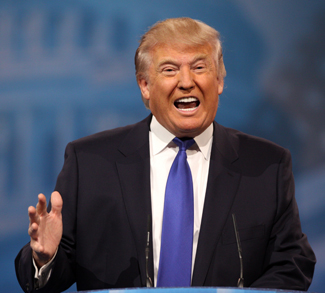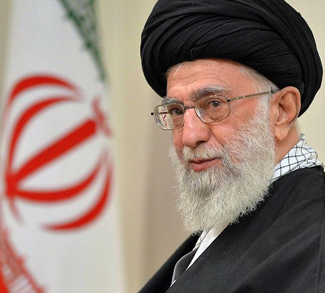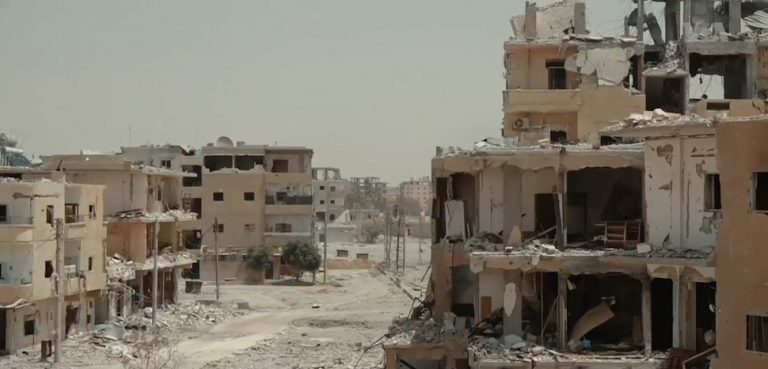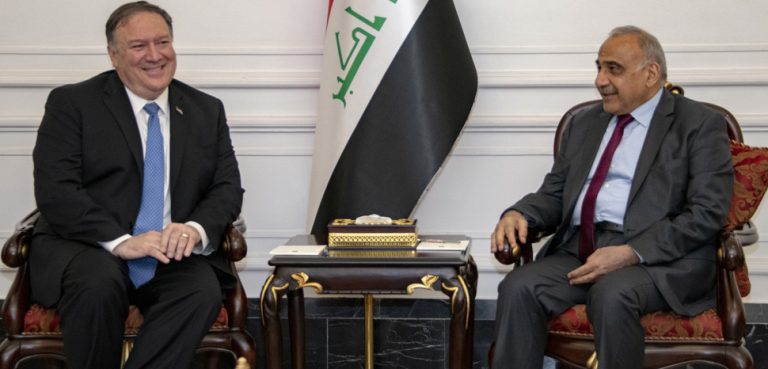Trump’s contribution to the ISIS retreat has been overstated…
President Trump has little, if anything, to do with ISIS’s defeat. The US-backed campaign against ISIS in Syria started two days before Trump won the elections last November 8. But Trump is a salesman and therefore, by definition, an opportunist. He’s doing what is logical in his world, and that’s about it. He needs consensus on the eve of midterm elections next year. Trump has also made a point of increasing military spending. If there’s one thing, however, that he can claim it’s that he has not interfered with Russia’s operations in Syria. Unlike the previous administration – and unlike what Hillary Clinton likely would have done – Trump allowed Russia to pursue its policy of backing the Syrian government’s effort to reclaim territory both at the expense of ISIS and other Islamist militias.
Claims that US efforts are just a smokescreen may have some credibility…
I have always doubted U.S. claims in the fight against ISIS. Indeed, it’s important to note that ISIS itself has direct roots in the US invasion of Iraq in 2003. (See my article on the subject here). As for the more recent campaign, there are many questions that linger. It’s true that policy wise – other than the April 2017 missile raid against a Syrian air base and accusations that the Assad government authorized a chemical weapon attack near Idlib – Trump has run a more ‘hands off’ policy in Syria. But, on a few occasions, when the US-led coalition had the chance to eliminate various terrorists who are guilty of killing thousands of Syrian civilians, they instead let them go, leaving their posts without challenging them such that they could move to the provinces in which the Syrian government forces are operating. The head of Russian forces in Syria, Sergey Surovikin last summer suggested that the Americans have used ISIS to oppose the Syrian-Russian-Iranian-Hezbollah effort, using the excuse of fighting international terrorism in Syria. Gen. Surovikin’s accusations are credible because whatever the U.S. does in Syria takes Israel into consideration. Israel is concerned that Hezbollah and Iran, apart from Assad, will gain considerable strength and prestige from defeating ISIS. Thus, from an overall US strategic outlook, it would have made sense for the Americans to back ISIS against Assad. At best, one can say, the Americans have been ‘neutral’ in the past year.
What about the contribution of other parties to the fight against Islamic State: Iran, Russia, Turkey, Kurds?
If ISIS has been defeated in Syria, praise must go almost entirely to the Russians, the Iranians, Hezbollah, and the Kurds. However, the Kurds have ulterior motives. The fall of Raqqa, a city reduced to ashes, has marked the end of the territorial entity of the Caliphate. It’s a historical event. The ‘caliph’ al-Baghdadi was either killed as the Russians said last August or has disappeared. Raqqa was designated as the capital in memory of one of the greatest caliphs of all time: Harun al-Rashid, the one whose tales inspired the Thousand One Nights and made Baghdad into a glorious capital of art, culture, science, and literature in the 9th century. The Raqqa of Isis however was a theater of terror rather than civilization.
The liberation of the city is not entirely good news. Raqqa remains the heart of a geopolitical mess. While the Iraqi army has chased the Iraqi Kurds led by Massoud Barzani from Kirkuk (an oil producing center), the Syrian Kurds have claimed their win in Raqqa with the support of Americans. Iraqi Kurds are trained by Americans and NATO. Meanwhile, those same NATO forces have been lukewarm about Kurdistan’s nationalist claims. Turkey and Iran are totally opposed to the independence of Iraqi Kurdistan, as voted by a referendum. The Syrian Kurds of Rojava, backed by Americans, want an autonomous area but inside Syria. Without an agreement with Damascus, Russia and Iran would be in the throes of the Turks, who during the siege of Kobane in 2015 helped ISIS fight the Kurdish resistance (Turkey has the most to lose from Kurdish victories in Syria/Iraq).
Thus, the fall of ISIS was mostly the effort of Damascus, Moscow, and Tehran. They had the most to gain and they put up the strongest effort. Even before the demise of ISIS in Raqqa, the terrorist group was losing pieces everywhere owing to heavy losses it suffered from Russian and Syrian efforts. Raqqa is more of a symbolic win, which the Kurds will use for their own opportunistic ends. Moscow and Tehran’s victory has certainly strengthened the Shiite axis (Tehran, Baghdad, Damascus, Beirut). It remains to be seen how Israel and the U.S. react. They are the losers in a sense. Russia has been pursuing better tiers with Turkey and Saudi Arabia also because, it helps in securing its goals in Syria. The U.S. has no role in the negotiations at Astana between Russia, Iran and Turkey. What will Trump do? Will he leave Vladimir Putin and Iran full control over what happens in Syria? Perhaps, which is why Trump’s advisors want to weaken Tehran by scrapping or renegotiating the Iran nuclear deal.
Yet the ISIS threat, or the threat of terrorism, is not over. The Kurds negotiated with ISIS in Raqqa, allowing thousands of armed fighters to flee. These fighters will probably move from somewhere else – maybe Europe, maybe North Africa. Clearly, Libya is a free for all mess still, thus it’s an ideal new base for the Caliphate. Others could go to Sinai or Yemen where ISIS might join in with al-Qaeda against Houthi Shiites in a conflict where the Saudis have been bogged down for years. What seems clear is that the situation in Syria (and Iraq) is not pointing to peace yet. The future of the Kurds could yet involve a major redrawing of the Middle Eastern map as devised by the Sykes-Picot agreement 100 years ago.
The opinions, beliefs, and viewpoints expressed by the authors are theirs alone and don’t reflect any official position of Geopoliticalmonitor.com.




